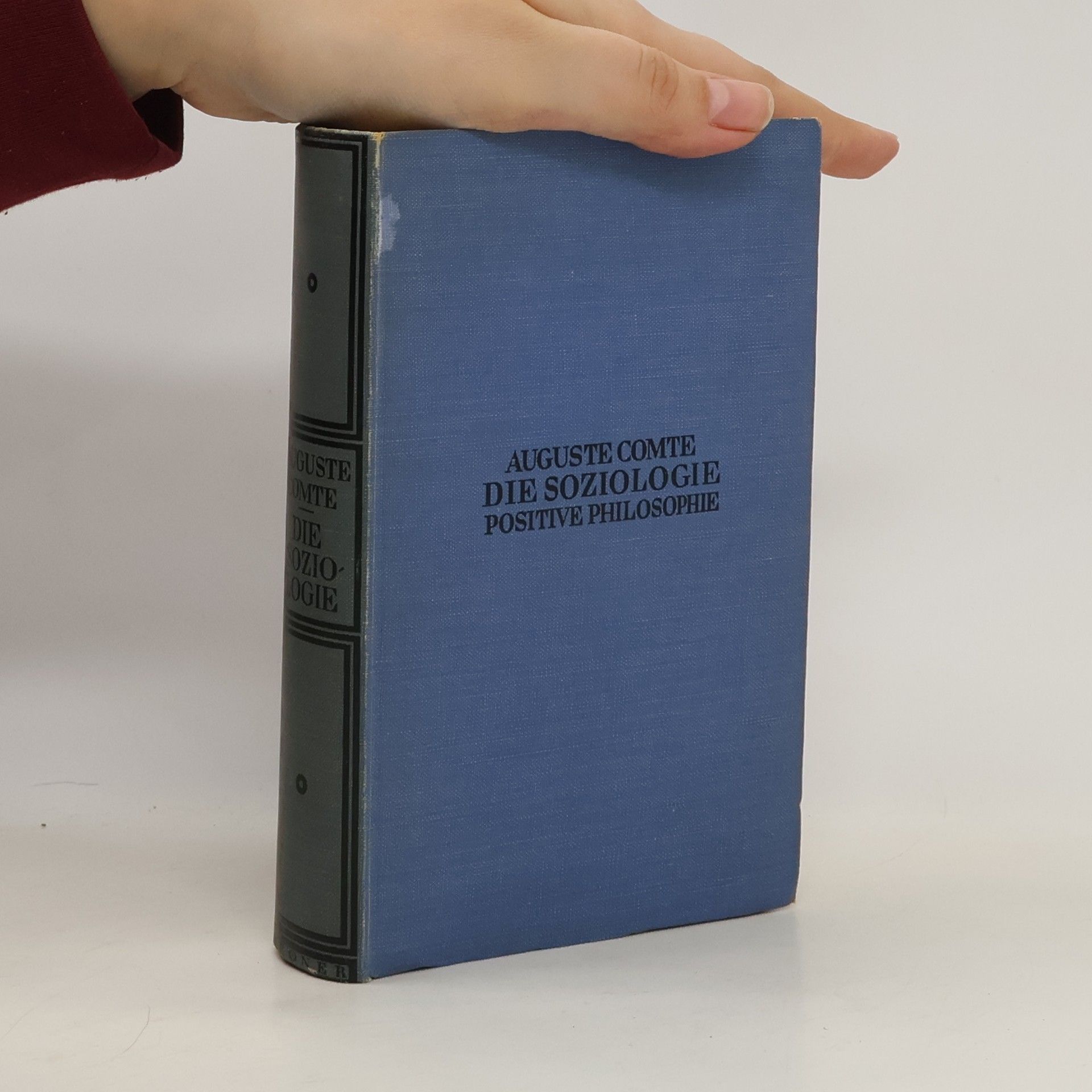Auguste Comte
- 136 stránek
- 5 hodin čtení
Publikace obsahuje texty ze semináře Centra pro ekonomiku a politiku z 11. září 2007 a další doplňkové texty. Jsou zde také přetištěny výňatky z díla Augusta Comta.
Auguste Comte byl filozofem a zakladatelem sociologie, který se zabýval pozitivismem. Snažil se reagovat na společenské problémy své doby navržením nové sociální nauky založené na vědě. Jeho myšlenky silně ovlivnily myšlení 19. století a položily základy pro moderní sociální teorii. Comte také zavedl pojem altruismus a rozvinul myšlenku "náboženství lidstva".






Publikace obsahuje texty ze semináře Centra pro ekonomiku a politiku z 11. září 2007 a další doplňkové texty. Jsou zde také přetištěny výňatky z díla Augusta Comta.
This fresh translation of Comte's early writings offers readers a deeper understanding of his philosophical contributions, enriched by scholarly apparatus that contextualizes his work within the historical landscape of his time. It highlights the significance of Comte's ideas and their impact on the development of social science.
Focusing on the role of mathematics in human understanding, this philosophical treatise, influenced by Auguste Comte, explores the significance of arithmetic as a foundational tool for scientific inquiry. Comte emphasizes empiricism and the necessity of evidence-based knowledge, arguing that mathematics serves as the language of science, enabling the formulation of laws governing the physical universe. He traces the historical evolution of mathematics and advocates for its rigorous application in fostering scientific advancement, highlighting its interconnectedness with various disciplines and its holistic approach to knowledge.
Auguste Comte, recognized as a pioneering philosopher of science, is renowned for establishing the theory of Positivism. This framework advocates for a unified approach to human existence, emphasizing the importance of love, science, and intellect as foundational elements for societal cohesion and progress.